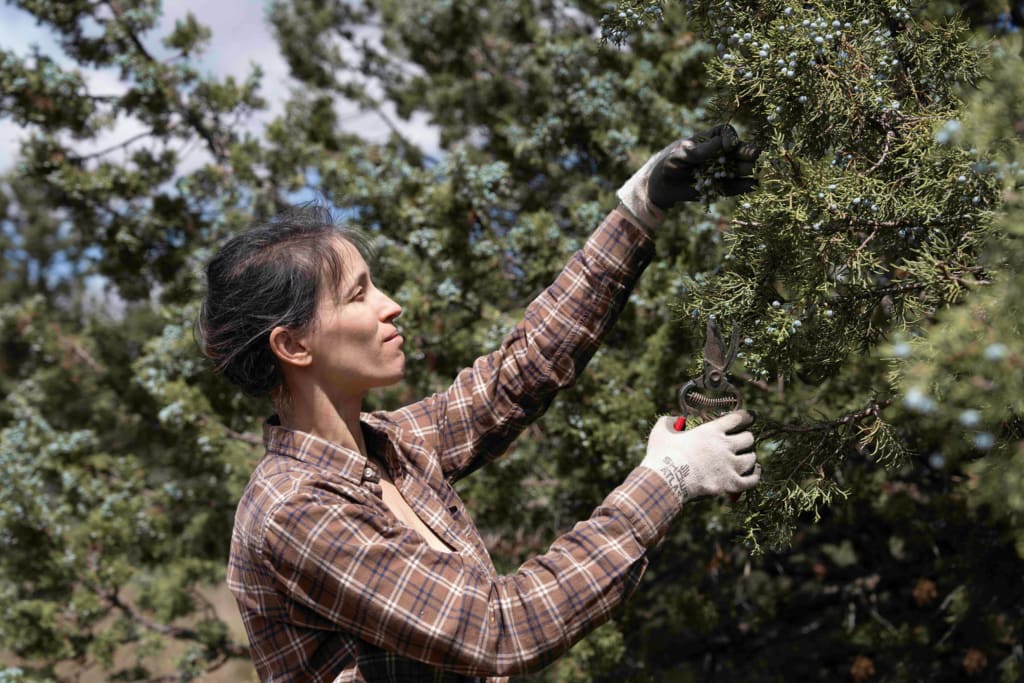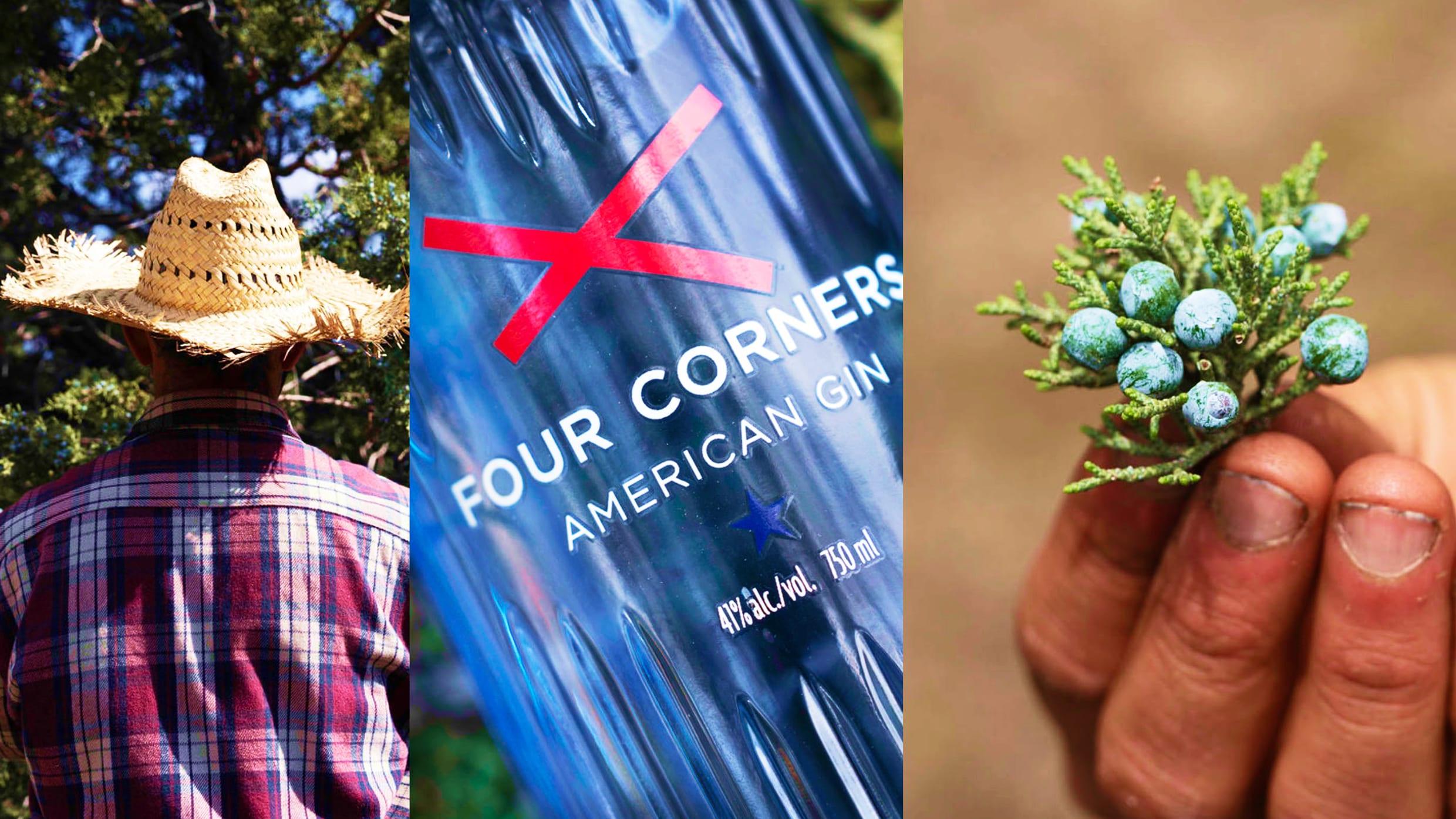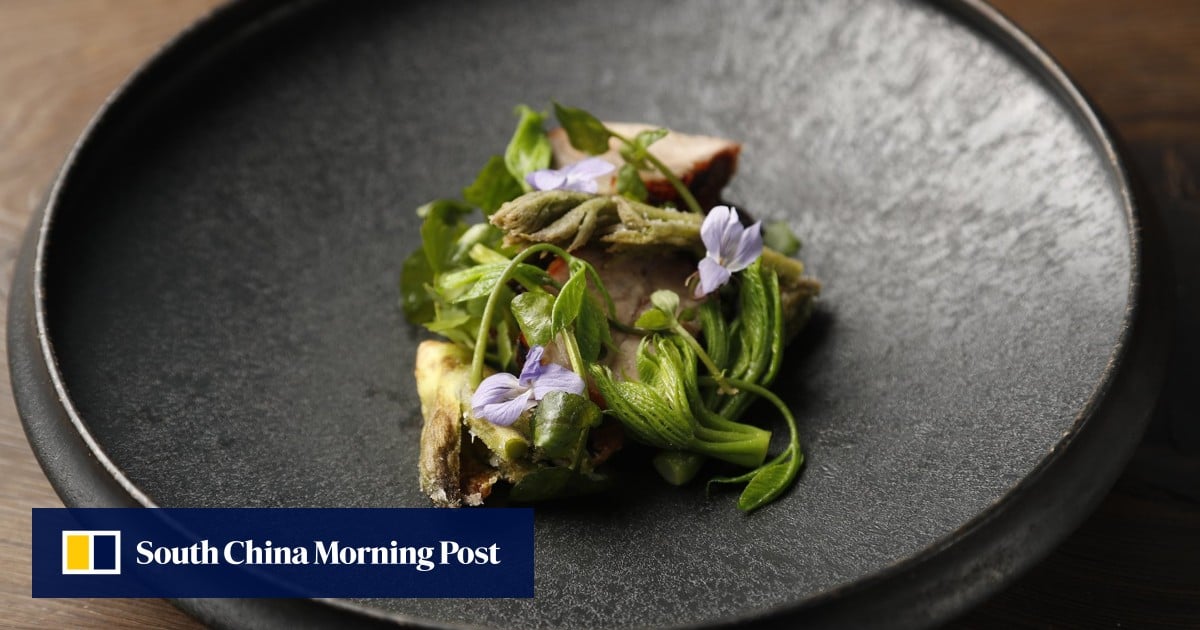Every year when the sun shifts and the air changes, I move away from moodier winter cocktails in search of a more refreshing drink: fizzy but not sweet, summery but not fruity. It has to be simple, without a lot of extra ingredients. After collaborating with craft distillers for the last twenty years, I don’t believe in masking the spirit at the heart of their hard work, especially when that work reflects terroir, infusing their distillations with character and a sense of place. That might sound like a tall order but mix it together and you get a sparkling gin and tonic made with Cobblestone Brand’s Four Corners Gin, the only American gin distilled with an indigenous botanical mix reflecting the coast-to-coast diversity of the contiguous United States.
Gin masters Brian Fagan and Christian Krogstad launched Four Corners on July 4, 2023, and earned a Double Gold at the San Francisco World’s Spirits Competition last year. Fagan is the cofounder of Cobblestone Brands (which includes Four Corners Gin) and one of the five original partners in Ireland’s award-winning Glendalough Distillery, acquired by beverage conglomerate Mark Anthony Brands; Krogstad is the creator of Aviation American Gin, co-owned by Ryan Reynolds and sold to mega-spirits company Diageo in a 2020 deal worth $610 million.
“Gin was clearly a category that was very dear to us,” says Fagan. “At Glendalough, we made Ireland’s first terroir-driven gin with wild foraged botanicals from the Wicklow Mountains surrounding the distillery. But could we do something similar, yet on a much greater scale, and make a gin that reflects the exciting and diverse flavor profile of America? Could we go to the four corners of the country and source botanicals to create something that has never been done before?”
Beyond Juniper
Unlike the big flavor strokes of craft whiskeys, composed from limited ingredients like corn and wheat, craft gin is a neutral spirit that gets its brand distinctive flavor from the vast variety of the botanical world—plant material like fruits, flowers, barks, herbs, spices, seeds, roots, and nuts—in a signature mix that is each distiller’s tightly guarded secret.
To be categorized as gin by law, that mix must contain juniper. However, in many contemporary craft gins, juniper no longer dominates the botanical mix as it does in traditional London dry gin (referring not to geography but a method of production). The traditional mix is the reason many people think they don’t like gin, likening the taste to drinking a Christmas tree. Today’s creative gin botanical mixes use juniper differently, allowing other flavors to emerge, from herbaceous and floral to fruity and spicy: easier to drink, and more versatile in cocktails, as evidenced by the 2023 growth of super premium gin to 16% of the $1 billion domestic gin market.
“In setting up Cobblestone Brands, we wanted to use the experience we acquired over the past decade, but also learn from our mistakes, and took quite an analytical approach to our new venture,” says Fagan. “While we retain a deep passion and love for the alcoholic beverage industry, as a small, challenger company, we needed to be smart about where to allocate our capital.”
Ginning up Growth
Their strategy had three key pillars: First, identify attractive categories in terms of growth dynamics, demographics, and price point where they could meet a consumer need and add value for stakeholders and partners. Second, create strong, attractive brands with best-in-class packaging and a real connection with their distillery partners. And third, bring their brands to market in a focused way that would resonate with distributor partners, retailers, bar owners, and (most importantly) consumers.

Because the use of American botanicals is rare—most are sourced from Europe and the Far East—Fagan’s first step was assembling an experienced US distilling development team. “We’ve known Christian Krogstad for many years and consider him to be a pioneer in not just gin, but across many different spirit categories,” he says. “We wanted to create a gin that would be appealing to the US palate, with a more balanced flavor profile that allowed the local botanicals to shine, and he was the driver in our ability to do that.”
Krogstad added Anna Mantheakis, the distiller at Westward Distillery in Portland, Oregon, where Aviation Gin was created and Four Corners is now made, and herbalist Elizabeth McElligott. Over the next 18 months, the team searched the four corners of the country for the right wildcrafted botanicals to create the flavor profile they were shooting for, and then worked on balancing those botanicals in the right proportions to achieve that desired flavor, with over 100 test distillates produced.
America, on the Rocks
The result is an all-American botanical mix that includes tart cranberries grown in Maine, representing the coastal Northeast; wild cherry bark from the Southeast; Cascara Sagrada, a bark found in the Pacific Northwest; and Yerba Santa, an evergreen herb of the Mojave Desert region.
The backbone of Four Corners Gin still comes from juniper but in a more harmonious way. Instead of the usual European (Adriatic) juniper, Four Corners uses wild, old-growth American juniper, harvested by foragers in central and eastern Oregon once the snow melts.
“It’s a slow and painstaking process at the behest of the elements at times, but this wild American juniper brings a uniqueness to our gin,” says Fagan. “Historically, juniper was used to cover up the flavors of low-quality alcohol. Even today, we believe many gins still mask much of their flavor with too much juniper by using the ripe berries, half crushed in large amounts.” At Four Corners, Fagan and his distillers use the whole plant—a single juniper plant will hold berries in every stage of ripeness—which creates a completely different starting point and allows for more interesting, deeper layers of flavor beyond that piney, resinous taste.
As the fastest growing super premium gin in its distribution markets, Four Corners achieved its full year’s sales target in less than a year and brought on another 14 employees. “We have amazing liquid, a hungry and driven team, and best-in-class distributor partners,” says Fagan. “And that gives us a fighting chance at success.”
Recognize your brand’s excellence by applying to this year’s Brands That Matter Awards before the extended deadline, June 14.
Sign up for Brands That Matter notifications here.






